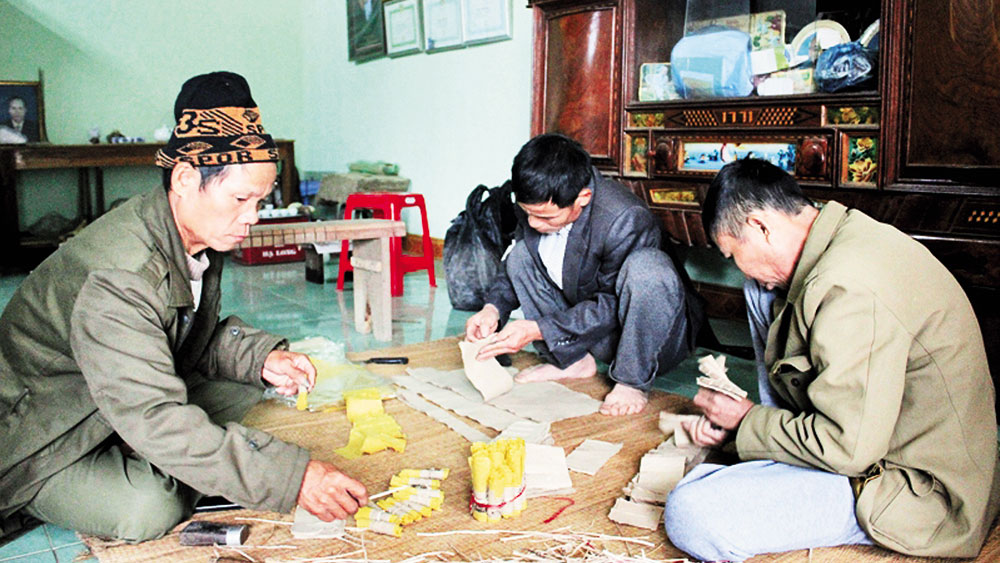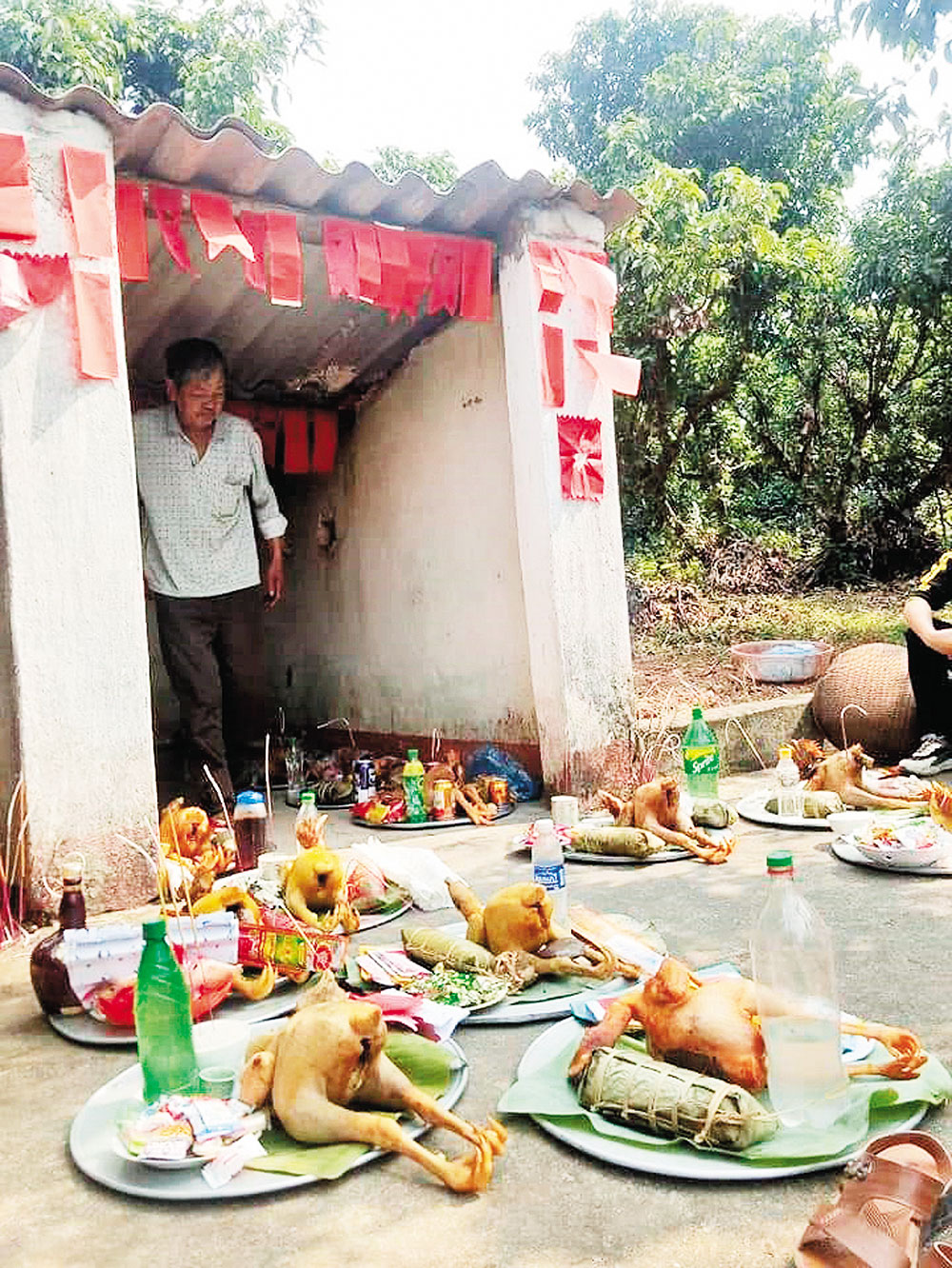Tet celebration customs of ethnic minorities
Early Tet of the Dao people
As usual, every the 12th lunar month, the family of Trieu Sinh Viet, a Dao ethnic in Thanh Chung residential area, Tay Yen Tu township (Son Dong district) - where the Tam Thanh altar (ancestral altar) of the Trieu family line is located - prepares an early Tet cerebration.
 |
|
The Dao people in Tay Yen Tu township (Son Dong district) prepare to welcome Tet early. |
According to the Dao people's view, after all Tet worship rituals take place at the big house (where the Tam Thanh altar is located), the remaining families (called choi houses) can hold ceremonies at their houses.
“For generations, the Dao people celebrate Tet earlier than other ethnic groups, usually from the eighth to the 30th of the 12th lunar month. This is an opportunity for descendants in the family to pay filial piety to their ancestors, say goodbye to the old year, welcome the new year, and wish each other good health, unity, and progress in their study," said Viet.
According to him, descendants from choi houses when coming to celebrate Tet at the big house must prepare offerings including chicken, sticky rice, wine, votive paper to contribute to the ancestors' offerings. On Tet, the big house must have three to five altars (depending on the family line) to worship Tam Thanh, the ancestors, the deceased, healers and the Kitchen Goddess.
In the ancestral worship ceremony, the Dao people do not burn incense but dried bark taken from the forest. When performing the ceremony, they put it in a small bowl to burn, until it is completely burned.
The early Tet worship ceremony cannot be complete without votive paper or horse paper, each horse paper is engraved with symbols representing animals (phoenix, dragon, tiger ...) to distribute to the ancestors to go to the market to shop for Tet. Especially, the horse papers are only available in the big house, and in choi houses there are only normal votive papers.
Only going to extend Tet wishes after worshiping the God of the Land
Every year, when Tet comes, the Nung people in Hong Ky commune (Yen The district) are busy welcoming the new year. Hong Ky boasts more than 75 percent of the population being the Nung ethnic minorities so the way to welcome the new year of the locals is also very unique.
During the Lunar New Year days, the peach branch has become an indispensable symbol of families. According to their viewpoint, peach branches with brilliant petals displayed in the house will bring in a stronger Tet atmosphere. In addition, the national flag is hung solemnly in front of the house, showing the national spirit and solidarity of the people here.
 |
|
The ritual of worshiping the God of the Land at noon on the first day of the Lunar New Year of the Nung ethnic group in Hong Ky commune. |
According to Vi Van Duc, a Nung ethnic in Trai Nhi village, Hong Ky commune, Tet really begins with a reunion meal on the afternoon of the last day of the old year and indispensable dishes are phung xoong (sausages) and castrated rooster.
To prepare for the year-end meal, a few months before Tet, Duc and other households in the village chose the most beautiful roosters in the barn to castrate and feed them with only rice. Particularly, sausages were made by people about 1 month before Tet. On the Nung ancestral altar, Chung (square sticky rice) cake, boiled castrated chicken, confectionery, pork and a tray of five fruits are indispensable, along with two sugarcane trees placed next to the altar.
In addition to the tray of offerings to ancestors, the Kitchen God and the guardian of the family, the Nung people also have the custom of worshiping the God of the Land. Each village of the Nung people has a shrine to worship the God of the Land or many families living on the same area establish a common shrine.
“The Nung people also celebrate Tet like the Kinh people, but the special thing is that the descendants in the family can only go to extend Tet wishes after the host complete the worshiping ceremony because we believe that everything is convenient when it is witnessed and blessed by the God of the Land", said Long Manh Thang, a Nung ethnic, Chairman of the Hong Ky communal People's Committee.
 Bắc giang
Bắc giang















Reader's comments (0)